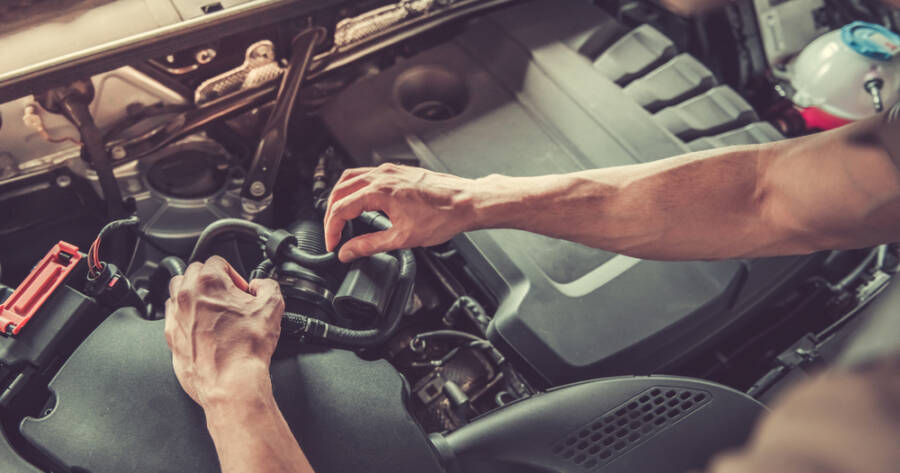Keeping your car in top shape is more than just a matter of aesthetic appeal—it’s a crucial component of vehicle longevity and safety. Routine maintenance can help prevent breakdowns and costly repairs, but knowing when to schedule this maintenance isn’t always straightforward. Regular oil changes are a well-known necessity, but numerous other aspects of your vehicle require attention. By understanding the broader spectrum of car care, you can ensure a smoother, safer ride.
Understanding Your Vehicle’s Maintenance Schedule
Every vehicle has its unique maintenance schedule, often outlined in its owner’s manual. This guide is generally based on the manufacturer’s recommendations for standard driving conditions.
However, if you frequently drive in harsher environments—such as extreme temperatures, dusty roads, or heavy traffic—your car might need more frequent attention. Familiarizing yourself with these guidelines can provide a baseline for when to consider scheduling services like oil changes and tire rotations.
Oil Changes: The Lifeblood of Your Engine
Oil changes are a critical part of vehicle maintenance, acting as the lifeblood that keeps your engine running smoothly. Depending on the type of oil used—conventional, synthetic blend, or full synthetic—the frequency of oil changes can vary widely.
In general, many experts suggest changing your oil every 3,000 to 5,000 miles, but always refer to your vehicle’s manual for the most accurate advice. Regularly checking oil levels and quality can also help you detect possible engine issues early.
The Importance of Tire Maintenance
Tires are often overlooked until there’s a flat or noticeable wear, yet they play a vital role in your car’s performance and safety. Routinely checking tire pressure, rotation, alignment, and tread depth can contribute significantly to efficiency and longevity.
Underinflated tires can decrease your car’s fuel efficiency, while misaligned wheels can lead to uneven wear. Aim to check your tire pressure monthly and schedule a tire rotation every 6,000 to 8,000 miles to maintain even tread wear.
Brake Inspections: Safety First
Brakes are undeniably one of the most important safety features of your vehicle. Listening for any unusual noises—such as grinding or squealing—could indicate worn brake pads or other issues.
It might be advisable to have your brakes inspected at least once a year or during regular oil changes. Catching issues early can avoid extensive damage and ensure the reliability of your braking system when you need it most.
Battery Care: Powering Up
Though batteries don’t require as frequent attention as other components, they are nonetheless crucial for your car’s performance. Extreme weather conditions can affect battery life, so regular checks especially before winter and summer can help.
Cleaning off corrosion from terminals and ensuring the battery is securely mounted are simple steps that may prevent starting issues. If your car’s battery is more than three years old, it might be wise to monitor its charge and anticipate a replacement soon.
Fluids and Filters: The Underappreciated Factors
Beyond oil, your car relies on several other fluids, such as coolant, brake fluid, and transmission fluid, all of which require periodic checking and refilling. Filters—fuel, air, and cabin—also play a crucial role in maintaining engine health and improving fuel efficiency.
Replacing these filters regularly can optimize your vehicle’s performance. While some fluid levels can be monitored at home, maintenance visits offer an opportunity for comprehensive checks.
Keeping an Eye on the Belts and Hoses
Belts and hoses are vital for the car’s electrical charging system, air conditioning, and even power steering. Over time, they can crack, fray, or lose tension.
Regular examinations for damage or wear can prevent engine overheating or loss of crucial systems. Belts, like the serpentine and timing belt, should be replaced at manufacturer-recommended intervals which might range between 60,000 and 100,000 miles.
Learn More Today!
Regular vehicle maintenance is a cornerstone of ensuring your car remains reliable, safe, and efficient over time. From oil changes to complex components like belts and hoses, understanding when to schedule these services can significantly impact the longevity of your vehicle.
While each car is unique, thoughtful attention to its needs can forestall more severe issues. By staying proactive and informed, you not only protect your investment but also assure peace of mind each time you’re on the road.

